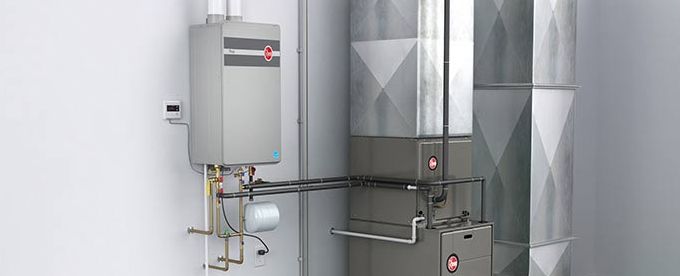
When in need of a water heater, there are typically two types of options you could choose from. But for many, when faced with this choice, haven’t got the slightest idea, which is better than the next. This article will go through these two options for you so you can make a rational decision and invest in the one that provides you with the best of everything.
A comparison of modern electric hot water tanks versus conventional water heaters can be found below.
What is a Conventional Water Heater
These are also known as hot water tanks and are usually installed in homes or office buildings by default. Without them, we would not be able to run our day-to-day errands such as having a bath or shower, cooking, cleaning, and more.
The reason for these units is to store hot water for daily use. These come in two different types namely the gas and the electrical. When you go for a shower, that hot water that’s is stored inside these tanks, is used.
It is then filled up with water again, which is then heated and used and the cycle repeats itself. Because of this frequent usage they usually come in large sizes of up to 80 gallons for large families of properties that have a large capacity of people in it.
These will commonly run on a gas that is located in the unit and fire up the tank to heat things. The heat starts at the bottom, much like when you place a pot of hot water on a stove, and it will rise upwards. It is then discharged through a pipe or a tube.
What is an Electrical Water Heater
Also known as an immersion heater, is a unit that sits on the inside of a hot water tank or cylinder. This is similar to a kettle, which has its electrical components tucked on the inside to heat the water up once the switch is turned on.
The water in the tank is heated up through a high-voltage electric heating rod or multiple rods if it is a large one. these are installed vertically on the inside of the tanks and they start to heat the liquid from the middle and disperse this heat throughout equally.
They are directly connected to a power supply like a socket using a cable. The easy part of using these is that they can be turned on and off via a switch. They are optionally used either as the main water supply or sometimes as a backup.
Conventional Versus Electrical
Let’s consider a few common factors you should be looking at when choosing between these two options.
Efficiency
Levels of efficiency are an imperative comparison when it comes to considering which one to buy. As such, the electrical types, are usually the more efficient of the two. This is because all the energy that is produced by electrical currents is converted into heat.
In comparison, the gas heater units don’t fully heat things and may have a less than 20% chance of efficiency. They easily lose about 205 of their heat either through a ventilation system of the roof and are difficult to retain heat, whereas the electrical ones retain heat up to 100% of the time.
Suffice to say that they need twice the energy to heat up because the water does not stay hot enough throughout. Many new buildings are incorporating the electric versions because they are more energy-efficient and quick to turn your cold showers into hot ones.
Controlling Them
There is also the difference regarding their controlling mechanisms which is something of note. The more modern and sophisticated approach to this is the electric versions which usually come with industry-standard, highly advanced systems that make it easy to control the temperature of the water, as well as switch it off and on via a button or lever.
Sometimes with the conventional gas ones, you need to wait a few minutes to have hot water coming through the pipes, so the performance is not entirely optimal if you are in a hurry to get to work and looking for a quick shower. They are also not as safe because stringent tests are not done on them. After all, they are almost out of the market in the 21st century and not many people use them anymore.
Cost Comparisons
Of course, you will also need to consider the cost implications of these two. Having read the above points already gives you a brief idea of which one would be the cheaper option – the electrical units. The initial cost of installation may be above average depending on how advanced a unit you purchase, but this pays out in the end and your water or heating bills will be far less than before.
The gas ones may be cheaper in some sense however if you are planning on having one for long-term household use, then gas will damage your wallet. When making that ultimate decision on a gas or electric hot water tank disregarding the efficiency, user-friendliness, and modern technology of the electric units is not going to do you any good.
No one opts to install a tank that won’t work properly after a few years, and the gas versions tend to fall under this category. Why would you want to get something old and outdated, when you can get something modern, and customizable? You can customize these as you like with the right setting so you can have a comfortable shower at the end of a long workday or in the morning when you get up.
Thinking about these aspects and others such as space and size restrictions of conventional heaters is a sure way of making a logical decision that will benefit you and your family in the long run, not to mention, save you costs when that old tank gives way. The answer is pretty clear – go for electric and you won’t look back.